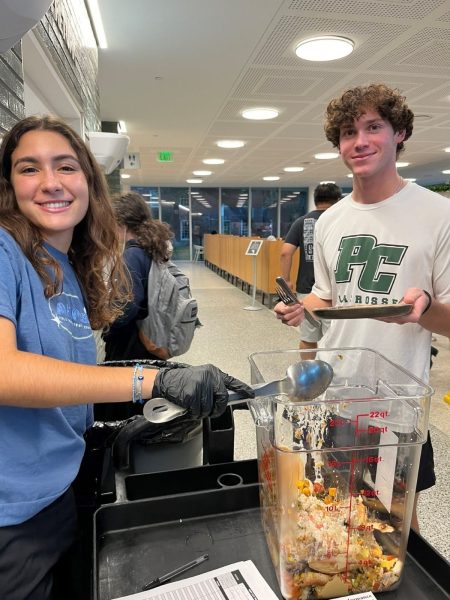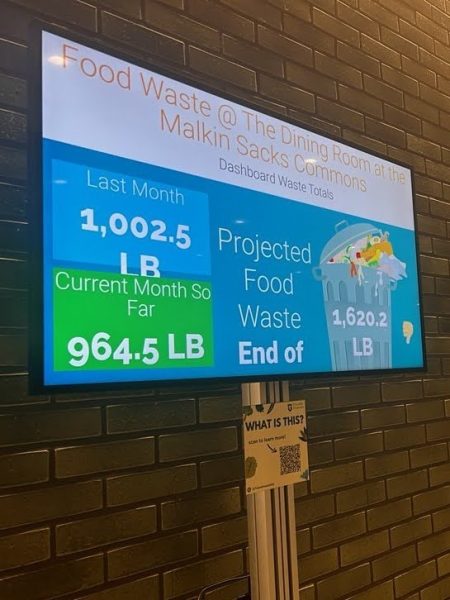Maybe a salad wasn’t the call today. Maybe you’re in a rush to class. Maybe the third chicken breast in a row isn’t worth the protein intake. Either way, you walk over to the dish belt, put your plate up and walk away without a second thought, your leftovers drifting off into the chasm of who-knows-where.
But your unfinished salad doesn’t just disappear into the unknown. Food waste, or uneaten food, makes up 24% of landfill inputs, costing the United States almost $450 billion annually.
“I think it’s hard to understand the full volume of it, right? Why would any individual person know or be able to conceptualize how much food is wasted during the day?” Emily Slazer, a sustainability manager with Tulane Hospitality, said. “[Reducing] food waste is really the focus that Wipe Out Waste supports,” she said.
The first part of reducing waste: Collecting data
Student interns with Tulane Hospitality host Wipe Out Waste events twice a month at the Dining Room at Malkin Sacks Commons and monthly at the Green Wave Grille. At these events, interns gather leftovers in a collective bin to measure food waste while interacting with students to educate them more about waste reduction. Diners can also fill out the surveys posted during events to share feedback for future projects.

“Data collection is tricky because there’s a lot we’re trying to capture with those Wipe Out Waste events, but it’s made easier when people are willing to take the time to participate,” Slazer said.
As part of the Wipe Out Waste initiative, newly implemented scales at the Commons weigh and record daily food discarded using AI cameras and scales.

“It’s a tool we’ll have moving forward called Leanpath, and it’s basically a smart scale that communicates with TV monitors in the Commons to help show our guests how much food has been sent back on the dish return throughout the day,” Slazer said.
Second: Addressing food insecurity
Food insecurity refers to the lack of access to nutritional and safe foods.
In partnership with the Food Recovery Network, a student group that donates food to local organizations such as New Orleans Mission, Tulane Hospitality works to save and package surplus cooked food for donation as well as focus on sourcing locally grown produce to support small farmers and improve diet quality.
Tulane Food Recovery Network collects and donates food to students in conjunction with Students Against Food Insecurity. Tulane Hospitality also established a free meal swipe program for students on campus and worked with Mission Bistro to address food insecurity.
Raising awareness
“Education is a big part of it,” Samuel Gautreau, the marketing manager for Tulane Hospitality, said. “Getting our students and guests aware that this is an issue…[helps with] learning about food waste and what’s going on and why this is important.”
Campus organizations such as SAFI and TFRN are working towards maximizing food use and combatting food insecurity through projects such as the establishment of a communal food pantry that provides students with reliable access to nutritious foods at no cost. Tulane Hospitality hosts events like Wipe Out Waste to raise awareness of food waste on campus.
On an individual scale, the initiative starts one plate at a time.
The solution does not require starting a new campaign or initiating a global movement. Reducing food waste and working towards a more sustainable food industry might look like asking for a half portion if you’re still full from breakfast or trying one slice of pizza first before grabbing a whole plate. Sometimes you don’t know what you want to eat or how much of it you want, but the first step towards solving a problem is knowing that it exists.
“It’s a shared effort. The intention behind the event is to make people feel empowered,” Slazer said. “We’re understanding this problem together.”
Learn more about food waste at ReFED.org.



Leave a Comment